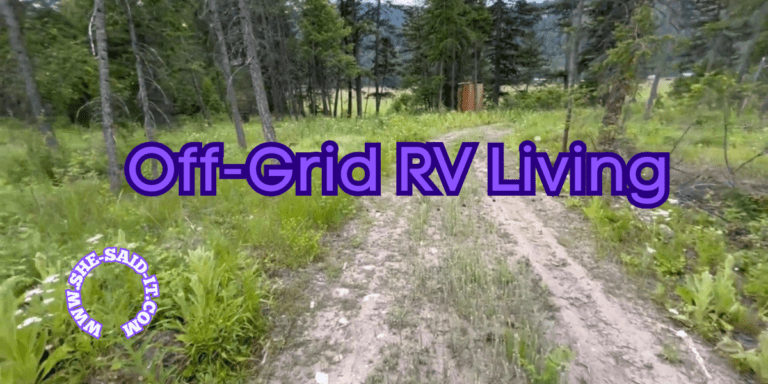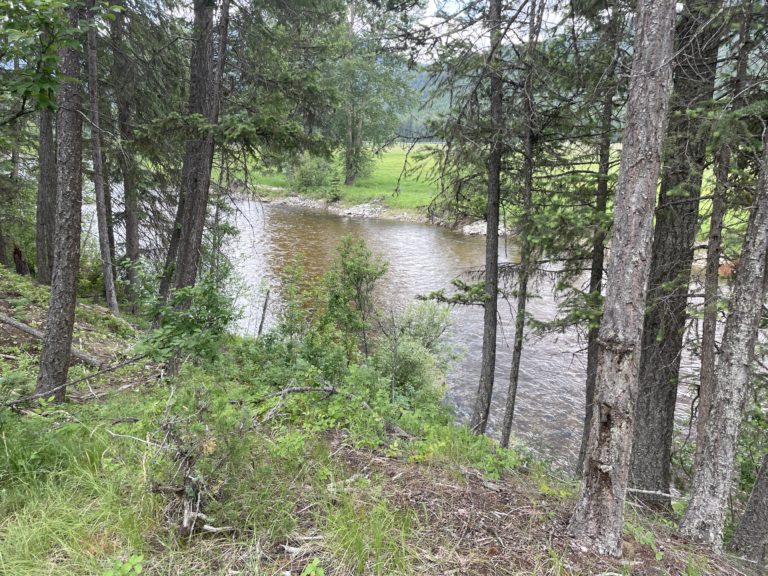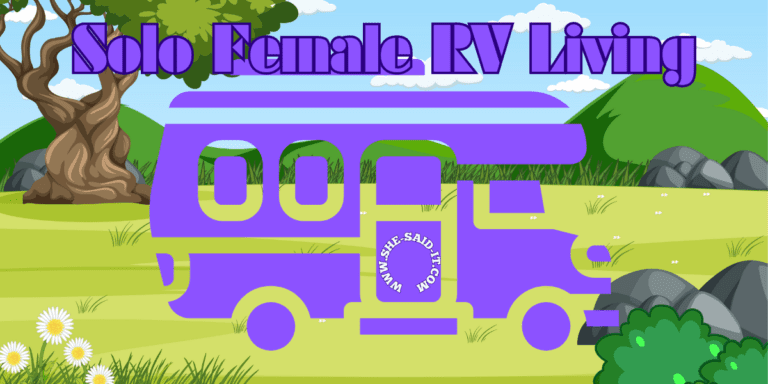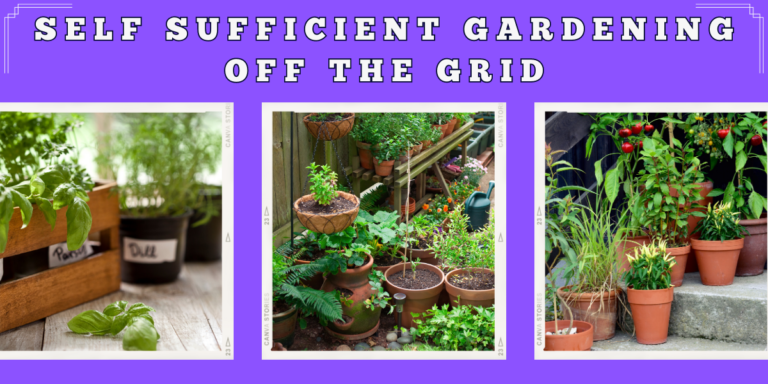Street Camping Tips Vancouver BC, Canada: From West Vancouver to Abbotsford
Updated February 21, 2024
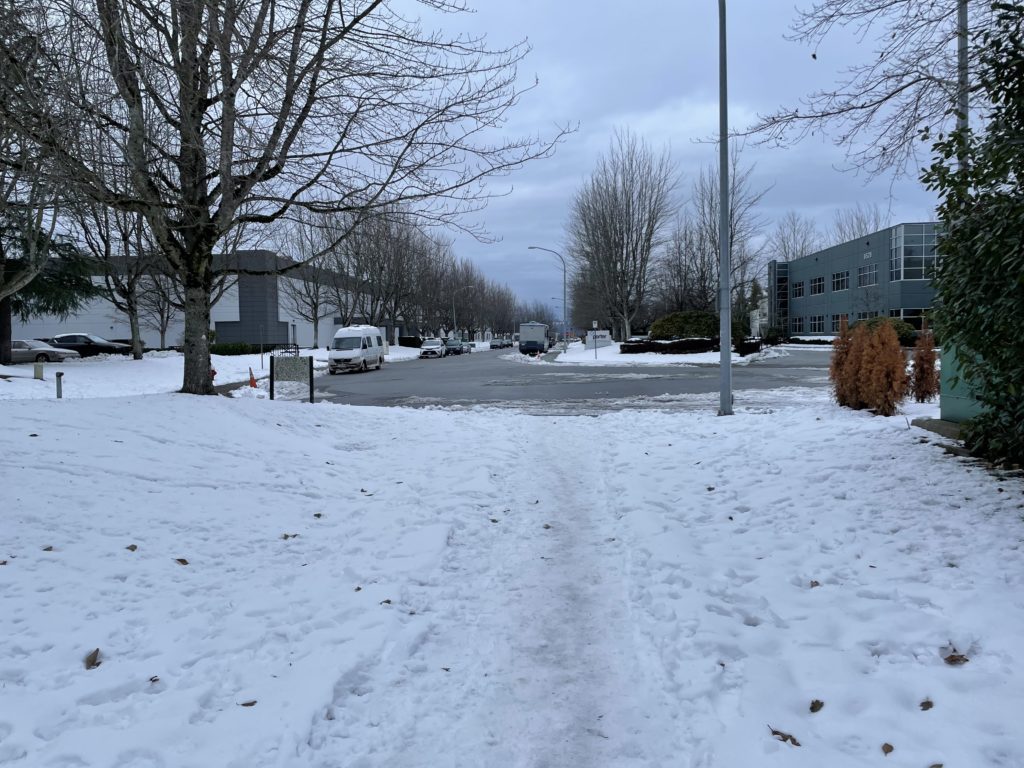
Winter StreetCamping. Richmond BC. Candda
Embracing Van Life for Work Flexibility and Freedom
Street camping, or as some folks like to call it, boondocking or urban camping, is really catching on with Van Lifers and RV lovers who want to mix up city vibes with their love for the open road. It is all about ditching the usual campsite setup for something a bit more spontaneous and, let’s be honest, exciting. And where better to dive into this lifestyle than in Vancouver, BC? The place is a feast for the eyes, with everything from the chill beaches of West Vancouver to the green, sprawling fields of Abbotsford.
We are about to take a little tour from one end of the lower mainland to the other, pointing out all the cool spots to park your RV or Van. Whether you are a seasoned pro at this or just thinking about giving it a try, there’s something for everyone. And the variety? From city sights to quiet nooks, each spot has its own vibe.
I began my van life adventure while working in the film industry, a career that often required me to travel from my small town base on Vancouver Island to various locations for gigs. It was common for shows to offer a per diem for staying and working on location. By choosing to live in my van and embrace Street camping, I found a clever way to pocket that per diem money while still staying close to the shooting locations. Working long 15-hour days but having the luxury to wake up just 15 minutes from my job site was a revelation. It became clear that adopting a camper van for my full-time van life was exactly what I needed to meet the demands of my career while maintaining the freedom and flexibility I cherished.
Why Choose Street Camping in Vancouver BC, Canada?
Opting for street camping in Vancouver is about more than just saving money. It embraces a lifestyle that positions you right at nature’s doorstep, all while keeping city life within easy reach. Especially for someone whose home is on Vancouver Island but works across the water on the mainland, the practical advantages are clear.
First, it is remarkably cost-effective. Living in one of Canada’s most expensive cities can swiftly deplete your finances, especially when your residence is on Vancouver Island but your employment takes you to the lower mainland. Street camping significantly reduces those living expenses, freeing up funds for necessities or saving for future endeavors.
Then there is the unique blend of being close to nature while having access to urban conveniences. Imagine waking to the gentle sounds of waves in West Vancouver or the quiet calm of the lush forest in North Vancouver, all a brief journey from your workplace. It is the perfect scenario for individuals who cherish the outdoors but need to remain connected to the urban environment for their employment.
Furthermore, the conveniences associated with camping in a metropolis like Vancouver are substantial. From amenities available around the clock to Wi-Fi hotspots, everything you require is always within reach. This accessibility is crucial for anyone working outside the typical nine-to-five schedule, providing a level of flexibility and ease traditional accommodations cannot offer.
Street camping in Vancouver is not merely a pragmatic choice for those commuting from Vancouver Island for work; it is a lifestyle decision that affords freedom, adventure, and an unparalleled combination of urban and natural beauty. It is a strategic, fulfilling way to blend professional obligations with personal preferences.
Preparing for Street Camping in the Lower Mainland
Embarking on a street camping adventure in the Lower Mainland requires a bit of preparation and know-how, especially when it comes to navigating the legal landscape, ensuring your safety, and making sure you have access to necessary amenities. Let us delve into these key areas to help you get ready for your urban camping experience.
Legal Considerations
First things first, understanding the local regulations regarding camping for free in British Columbia. Each city or town in the Lower Mainland has its own set of rules that govern where you can park your RV or campervan overnight. For example, some areas might allow overnight parking in designated spots, while others may have strict no-camping ordinances. It is a good idea to check the official city websites or contact local authorities to get the most current information. This step not only helps you avoid fines or being asked to move but also ensures you are a respectful member of the street camping community.
Safety Tips
Safety should always be a top priority when you are street camping. Choosing well-lit areas, parking in neighborhoods with a good reputation, and always locking your doors at night can go a long way in ensuring a peaceful sleep. Additionally, it is wise to have a safety plan in place, such as keeping a phone charged and within reach and knowing the location of the nearest police station. Remember, blending in as much as possible can also enhance your safety; therefore, keeping a low profile and respecting the quiet hours of the area are good practices.
Amenities and Accessibility
Access to essential amenities like water, waste disposal, and Wi-Fi can make your street camping experience much more comfortable. Many municipalities and businesses offer facilities that are camper-friendly. For instance, some gas stations and recreational centers provide potable water and dump stations. As for Wi-Fi, cafes, libraries, and even some public parks offer free access, which can be incredibly helpful for those who work remotely or like to stay connected. Apps and websites dedicated to RV living and camping can be invaluable resources for finding these amenities and sharing tips with fellow campers.
When researching street camping tips Vancouver and area it is important to understand the legalities, prioritize your safety, and ensure access to amenities will set you up for a successful and enjoyable experience. Whether you are drawn to the urban landscapes for work or the adventure of living on the move, a little preparation goes a long way in making street camping a rewarding part of your lifestyle. If you are reading this because you are thinking about going full time van life, you might be interested in reading our post about different types of portable toilets.
Exploring the best spots for street camping in Vancouver and its surrounding areas offers a unique blend of urban convenience, natural beauty, and accessibility to work, especially for those in the film industry or seeking adventures outside the traditional camping locations. Here’s a rundown of some top picks across the region:
West Vancouver
Key Locations and Attractions: West Vancouver boasts some of the most picturesque street camping spots with views of the ocean and access to high-end amenities. While street camping here, you’re just a stone’s throw away from the Sea-to-Sky Highway, leading to breathtaking destinations like Squamish and Whistler. Don’t miss the chance to explore the scenic Lighthouse Park and the serene Ambleside Park.
North Vancouver & Deep Cove
Recommendations: For those seeking a mix of nature and city life, North Vancouver and Deep Cove offer serene spots known for their lush landscapes and waterfront views. Street camping in these areas puts you close to hiking trails, such as the famous Grouse Grind and the quieter Baden Powell Trail, while still being within reach of urban conveniences.
Richmond
Tips for Street Camping: Richmond, with its proximity to film studios and industrial areas, is ideal for industry professionals looking for spots near work locations. The area around Iona Beach Regional Park offers a quiet retreat, although it’s wise to check local regulations. Richmond’s multicultural food scene, especially around the Golden Village, provides a great way to wind down after a long day on set.
Langley & Abbotsford
Advice on Street Camping: These suburban locales offer a quieter street camping experience away from the city’s hustle and bustle. Langley and Abbotsford provide a more laid-back atmosphere, with access to amenities without the tight parking and restrictions found in more urban areas. Be sure to visit the local farms and vineyards that dot the region for a taste of local produce.
Squamish & Horseshoe Bay
Exploring Outside Vancouver: For those willing to venture a bit further, Squamish and Horseshoe Bay are gateways to outdoor adventures. Squamish, the outdoor recreation capital of Canada, offers climbers, hikers, and nature lovers a paradise to explore. Horseshoe Bay, with its ferry terminal, provides easy access to Vancouver Island and the Sunshine Coast, making it a strategic spot for early morning departures.
When considering street camping tips in Vancover and surrounding areas, always ensure you are respecting local bylaws and the community. Each spot offers its own charm and challenges, but with the right preparation and respect for the surroundings, you can enjoy the best of what the Vancouver area has to offer. Whether you’re drawn here for work or the sheer joy of exploration, street camping in Vancouver and its surrounding areas can enrich your experience of the Pacific Northwest.
Tips for a Successful Street Camping Experience
Navigating the world of street camping requires more than just a love for adventure; it calls for mindfulness about how we interact with the places we temporarily call home and the communities we visit. Here are some essential tips to ensure your street camping experience is rewarding, respectful, and safe.
Community Etiquette
Being a considerate street camper means blending into the local environment as seamlessly as possible. This involves choosing spots that do not disrupt residents or businesses and keeping noise to a minimum, especially during late hours. It is also crucial to leave no trace behind, ensuring that the space looks the same, if not better, than when you arrived. Simple acts like picking up litter, even if it is not your own, contribute significantly to a positive relationship between street campers and local communities.
Camping for free in British Columbias ruled by municipal bylaws that do not permit full time RV living of any kind. Most also forbid parking in one spot for over a certain amount of time. To keep on the forgiving side of the laws, moving frequently will help keep you flying under the radar. It will also ensure the neighbors don’t alert the authorities. Parking in industrial type areas will also help keep you from getting the dreaded knock. It is important to read any signage alerting you to specific rules to the street you are parked on. Perhaps there is street cleaning every Monday. Maybe you can park for as long as you want between certain hours of the day.
Dealing with Weather
Vancouver’s climate is as varied as its landscape, with rainy days being a common occurrence, especially during the fall and winter months. Preparing for this involves ensuring your vehicle is well-maintained and equipped to handle wet conditions. Waterproof covers for any outdoor gear and a reliable heating system inside your van can make a world of difference. On the brighter side, Vancouver’s summers offer a mild and pleasant climate, perfect for exploring. However, always have a plan for sudden weather changes, such as keeping extra layers and rain gear handy.
Security Measures
Keeping yourself and your belongings safe is paramount when street camping. This can be achieved through several practices, such as parking in well-lit areas and being discreet about the valuables you keep in your vehicle. Investing in good quality locks and alarm systems is also advisable. Furthermore, staying informed about the areas you plan to visit and trusting your instincts when a place feels off can go a long way in ensuring your safety. It is also a good idea to have a list of local emergency contacts, including police stations and hospitals, readily available.
By adhering to community etiquette, preparing for the local weather, and taking steps to secure your belongings, you can enjoy a fulfilling street camping experience in Vancouver and its surrounding areas. These practices not only ensure your own safety and comfort but also help in fostering a sustainable and harmonious relationship with the places and people you encounter on your journey.
Navigating Challenges
Street camping, while offering a unique blend of freedom and adventure, comes with its own set of challenges. Among these, parking restrictions and noise issues are the most common, yet manageable, with the right approach. Camping for free in British Columbia is a challenge and definitly a privledge we all need to treat with respect.
Parking Restrictions
One of the primary hurdles for street campers is navigating the maze of municipal bylaws, which often do not permit full-time RV living. Furthermore, many municipalities have regulations that forbid parking in a single spot for extended periods. To navigate these restrictions, one effective strategy is to adopt a nomadic routine, moving your vehicle regularly. This practice not only helps in staying on the right side of the law but also minimizes the chances of drawing unwanted attention from neighbors who might otherwise feel compelled to notify the authorities.
Opting for parking in industrial areas during off-hours can be a savvy move. Such locations are typically less frequented by residential traffic and enforcement, thereby reducing the likelihood of encountering the infamous knock on the door. However, it is crucial to remain vigilant and respectful of the area, ensuring that your presence does not disrupt local operations.
Noise Concerns
The hustle and bustle of urban environments can sometimes translate into a noisy backdrop for street campers. To mitigate this, seeking out quieter streets or industrial zones that become tranquil after business hours can provide a more peaceful setting for rest. Earplugs or white noise machines are also effective tools for creating a more serene sleeping environment, helping to drown out the urban din. Check out our review of this sound machine from amazon. Great price and it will run all night for two or more nights on a single charge. Click this link for the full review.
Heeding Signage
Paying close attention to street signage is another vital component of a hassle-free street camping experience. Signs can inform you about specific local regulations, such as street cleaning schedules or time-restricted parking windows. Being proactive in understanding and adhering to these rules not only helps in avoiding fines or towing but also demonstrates a respectful coexistence with the local community.
While street camping does present certain challenges, they are not insurmountable. Through a combination of mobility, careful selection of parking spots, and adherence to local laws and signage, street campers can enjoy the benefits of urban exploration with minimal friction. Remember, the key to successful street camping lies in blending in, staying informed, and maintaining a respectful presence wherever you choose to park.
Resources for Street Campers in Vancouver
Embarking on a street camping journey in Vancouver brings with it the need for a good set of resources. These tools not only help you find the best spots to park but also ensure you are up-to-date with local bylaws and connected to a community of fellow campers. It is crucial, however, to remember the importance of conducting your own research, as rules and regulations are in a constant state of flux.
Finding Legal Street Camping Tips Vancouver, BC, Canda
The first step to a successful street camping experience is identifying legal places to park. Websites and apps designed for RVers and campers, such as iOverlander, are invaluable for this purpose. They offer a user-generated database of spots, complete with reviews and tips from the camping community. This real-world advice can be instrumental in finding those hidden gems that are both legal and camper-friendly.
Keeping Up with Local Bylaws
Staying informed about the local bylaws in Vancouver and its surrounding areas is essential for any street camper. The City of Vancouver’s official website is a great starting point, offering access to parking regulations and any temporary bylaw adjustments. Additionally, municipal websites for areas like Richmond, North Vancouver, and Langley provide specific information that could impact where and how you can camp.
Engaging with Community Forums
Connecting with fellow street campers through online forums and social media groups can provide a wealth of information and support. Platforms such as Reddit have active RVing and van life communities where you can ask questions, share experiences, and get advice on street camping in Vancouver. These forums are also a great place to stay informed about changes in bylaws or to learn about community events and meetups.
The Role of Apps
Apps like iOverlander do not just help in locating spots; they also serve as a dynamic resource for navigating the challenges of street camping. Users often share updates on parking regulations, safety tips, and amenities available at different locations. This crowd-sourced information can be incredibly timely and accurate, making such apps a must-have tool in your street camping toolkit.
It is worth emphasizing that while these street camping tips Vancouver and area are incredibly helpful, the responsibility to stay informed and compliant with local laws rests on you. Doing your own research, double-checking the details, and preparing for changes are all part of the street camping adventure. With the right resources at your disposal and a proactive approach to gathering information, you can enjoy the freedom and flexibility that street camping in Vancouver has to offer.
Conclusion
Embarking on a street camping adventure in Vancouver presents a unique opportunity to explore one of Canada’s most vibrant cities from a new perspective. This approach to urban exploration allows you to immerse yourself in the natural beauty and urban charm of the lower mainland, all while maintaining the freedom and flexibility that comes with living on wheels. The benefits of this lifestyle are numerous, from the cost savings compared to traditional housing or campgrounds to the close proximity to nature and urban conveniences alike.
Street camping in Vancouver and its surrounding areas also opens the door to discovering hidden gems and local favorites that you might miss when sticking to conventional travel routes. Whether it is waking up to breathtaking views in West Vancouver, finding serene spots in North Vancouver and Deep Cove, or exploring the diverse cultural tapestry of Richmond, Langley, and Abbotsford, the lower mainland has something for every urban camper.
However, it is crucial to embark on this journey with a sense of responsibility and respect for the communities you visit. Staying informed about local bylaws, being mindful of community etiquette, and leaving no trace are essential practices that ensure street camping remains a sustainable and welcome activity for years to come.
We invite you to share your own experiences and street camping tips Vancouver and lower mainland. Your stories not only enrich our collective knowledge but also foster a supportive community of like-minded adventurers. Whether you are a seasoned street camper or considering your first urban camping trip, your insights can help others navigate this rewarding way of life.
We would love to hear from you. What have been your favorite spots? How have you navigated the challenges? Your adventures, big and small, contribute to a tapestry of experiences that inspire and guide us all. Together, let us explore responsibly, sharing the joys and learning from the challenges of street camping in Vancouver.


